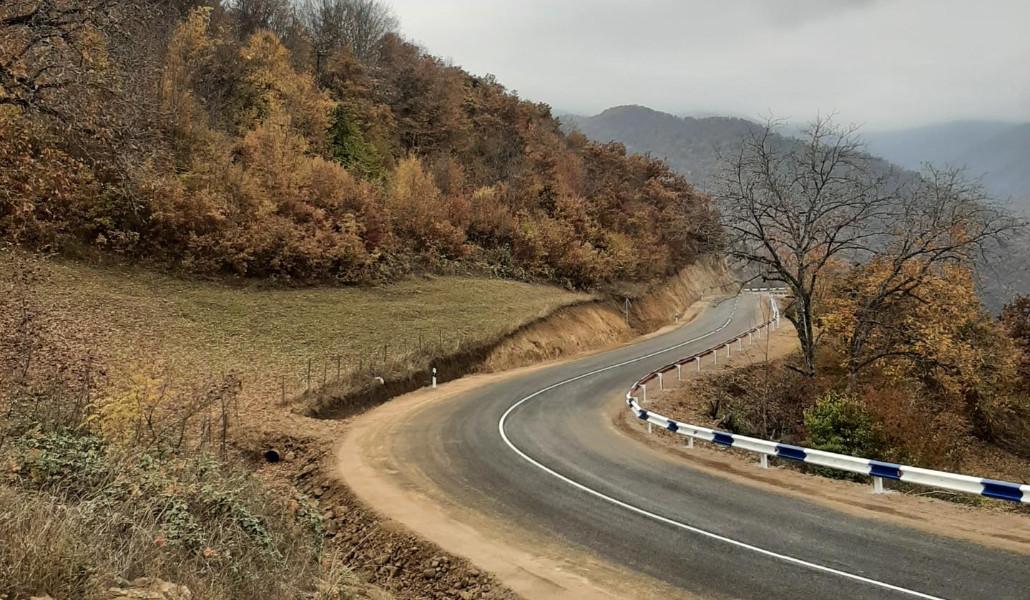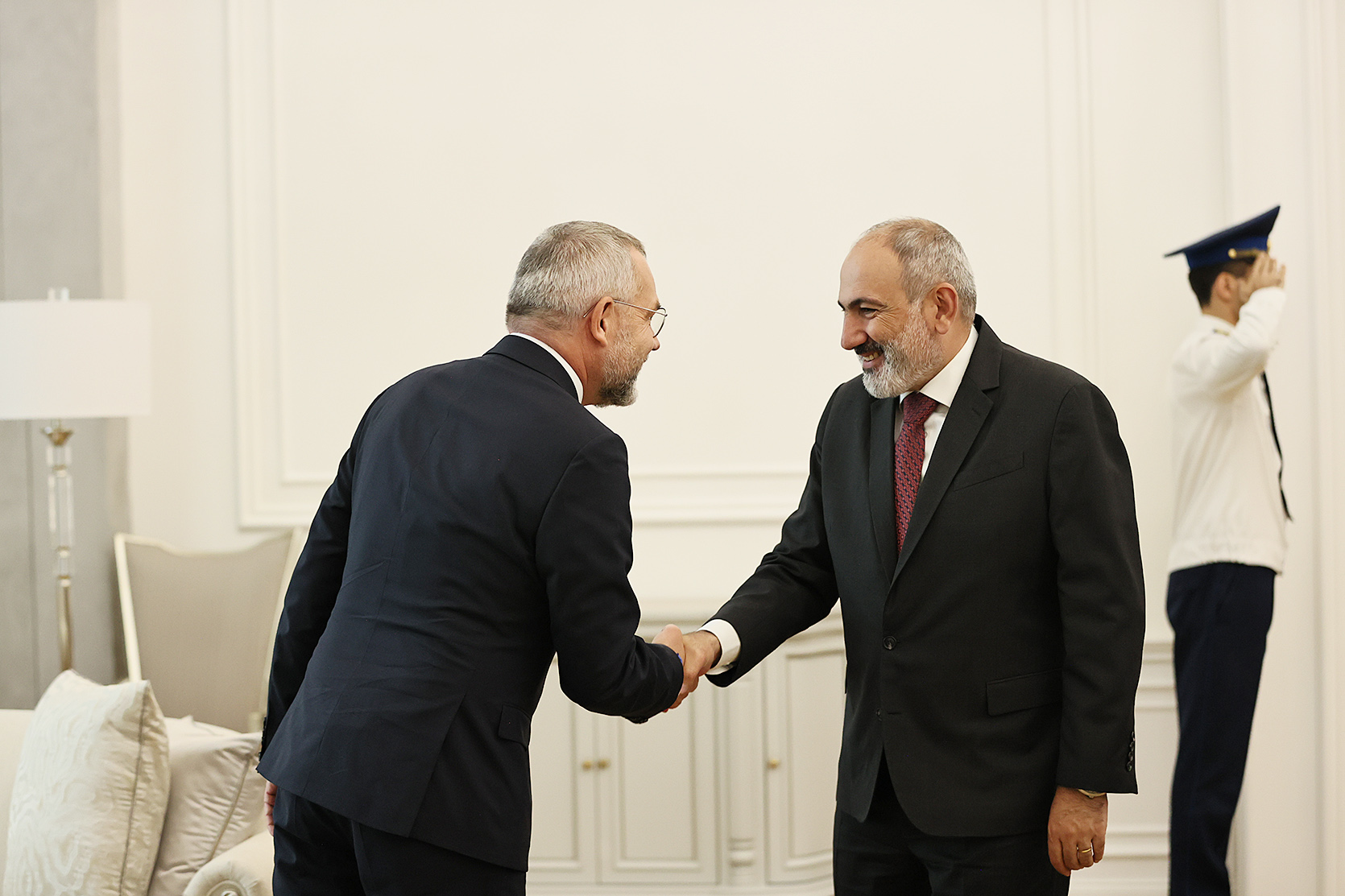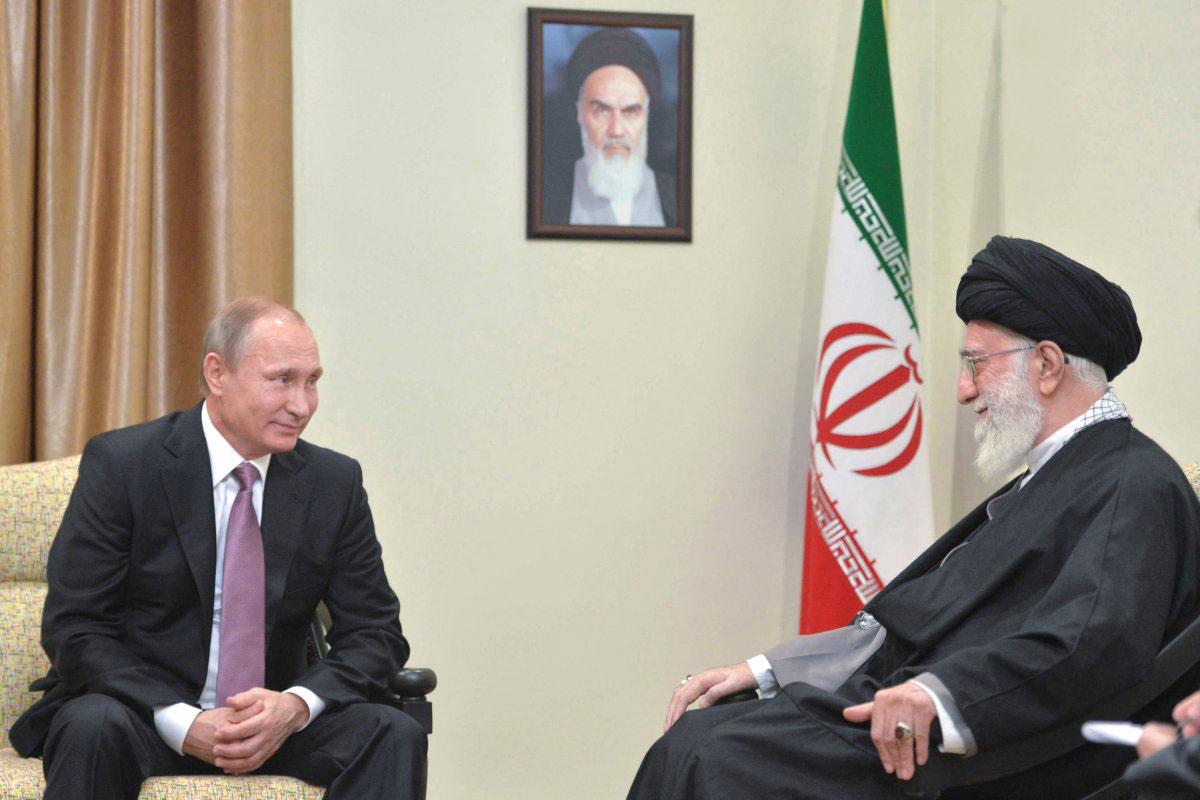
“Dialogue” between Yerevan and Baku
“The Republic of Armenia organizes the movement of cargo, vehicles, and persons through its territory and guarantees their security. The provisions of the Statement [November 9, 2020 statement ended the Karabakh war] are very clear in this regard. It is clear that the Republic of Armenia should do that within its jurisdiction and sovereignty,” stated Ani Badalyan, spokesperson of the Armenian Ministry of Foreign Affairs, in an interview with “Armenpress” this morning. This was her response to the statement from the spokesperson of Azerbaijan’s Foreign Ministry, Aykhan Hajizade, who accused Yerevan of “disregarding its commitments.”
The issue at hand is that Azerbaijan is demanding a “corridor” – a route connecting it to Nakhchivan that would not be controlled by Armenia. Russia, meanwhile, insists that it should be the one to control the road.
The text of point 9 of the statement reads: “All economic and transport links in the region will be unblocked. The Republic of Armenia will ensure the transport connection between the western regions of the Republic of Azerbaijan and the Nakhchivan Autonomous Republic for the purpose of facilitating the unhindered movement of citizens, vehicles, and goods in both directions. The control of transport communication will be carried out by the Russian FSB Border Service.”
This issue was touched upon on Saturday by Armenian Prime Minister Nikol Pashinyan. During the “Crossroads of Peace: uniting security and democracy” conference, he reiterated that Armenia is ready to unblock communications while maintaining control over its sovereign territories. He emphasized that the statement clearly mentions that Armenia will ensure safe communication via its own roads. The prime minister once again stated that Russia could oversee the process without being physically present on-site. Regarding the views of the Azerbaijani authorities, he described “Baku’s focus” on just one point of the document as “unacceptable.”
More details on Pashinyan’s remarks, as well as the “dialogue” through statements made by representatives of the foreign ministries of Armenia and Azerbaijan.
- “Baku wants Yerevan to acknowledge its hegemony” – Armenian political analyst
- Regional transportation routes: How Georgia’s transit role is changing in light of new realities
- Why did Baku and Moscow recall the trilateral statement with Yerevan? Opinion
“The physical presence of the Border Guard Service bodies of the RF, is not foreseen”
Commenting on the issue of unblocking regional communications, Foreign Ministry spokesperson Ani Badalyan recalled the Armenian government’s initiative, the “Crossroads of Peace” project. She announced that it “outlines the roadmap for fulfilling the obligations undertaken by the Republic of Armenia.”
According to her, within the framework of this project, Armenia has presented its proposals to the Azerbaijani side:
“Being interested in unblocking all transport and economic infrastructures of the region, as envisaged by the Trilateral Statement, we have already proposed and reaffirm our proposal to Azerbaijan to begin the process without further delay.”
Regarding the interpretation of the trilateral document, Ani Badalyan suggested focusing on the facts and clarified what is specifically meant in the text.
She emphasized that the same document mentions the presence of Russian peacekeepers in Nagorno-Karabakh and their control over the 5-kilometer-wide Lachin corridor, but added: “But today, neither the Lachin corridor nor the Russian peacekeepers are present.”
She then spoke about other provisions of the document, specifically the one regarding the return of internally displaced persons and refugees to the territory of Nagorno-Karabakh and its surrounding regions under the supervision of the United Nations High Commissioner for Refugees (UNHCR):
“But Azerbaijan claims that there is no territory of Nagorno-Karabakh, there is no Nagorno-Karabakh, which, in fact, means renouncing this obligation under the Trilateral Statement. To date, no Armenian refugee or internally displaced person has returned to Nagorno-Karabakh or its surrounding regions.”
Badalyan also mentioned that Armenians are still being held in Baku’s prisons, despite the trilateral statement stipulating the exchange of prisoners of war, hostages, and other detained persons:
“Azerbaijan insists that they are not prisoners of war. If they are not prisoners of war, it means that they are hostages or other detained persons: the formulation of the Trilateral Statement applies to all persons held in captivity.”
She concluded her interview by addressing the issue of missing persons, which is frequently raised by Azerbaijan. Badalyan noted that about 1,000 Armenians are also missing as a result of the two Karabakh wars and assured: “We are ready to cooperate on this matter as well.”
“Armenia’s obligations are clearly outlined in point 9”
The clarifications from the Armenian Foreign Ministry spokesperson were in response to the statements made by her Azerbaijani counterpart, Ayhan Hajizadeh. Hajizadeh, in turn, was commenting on the remarks made by Armenian Prime Minister Nikol Pashinyan during the Yerevan forum. He declared that Pashinyan’s statements on the unblocking of communications were an attempt to distort reality:
“Point 9 of the trilateral statement clearly outlines Armenia’s obligations regarding the opening of communications and the form in which control over transport connections will be organized.”
In conclusion, he called on the Armenian authorities to “abandon baseless claims” and “statements that distort reality.”
Here’s the English translation of the latest text you shared:
Pashinyan: “It’s about unblocking all roads, not just one”
The ruling “Civil Contract” party and the Konrad Adenauer Foundation co-organized the “Crossroads of the Peace: uniting security and democracy” conference. During his speech, Armenia’s Prime Minister addressed the issue of unblocking regional communications. He focused in detail on Armenia’s obligations outlined in the November 2020 statement:
“Azerbaijan often tries to create the impression that Point 9 of the trilateral statement concerns only the connection between Azerbaijan’s western regions and Nakhchivan. This is not the case.”
According to Pashinyan, this is merely a subheading of Point 9, which actually addresses the unblocking of all economic and transport communications in the region. Therefore, he believes it is “illogical and impossible” to discuss communication issues separately. The comprehensive concept of unblocking is presented in Armenia’s government project “Crossroads of Peace”.
He stated that Armenia will guarantee the security of the road connecting Azerbaijan to Nakhchivan through its territory, while Russia can only monitor and control how effectively Armenia fulfills its obligations.
“No part of the trilateral statement of November 9th mentions any limitations on the sovereign rights of the Republic of Armenia. There is no mention of any other country controlling any square meter of Armenia’s territory. This does not exist, nor can it exist.”
In Pashinyan’s assessment, the narratives coming from Baku suggest that Azerbaijan wants to use Armenia’s roads while keeping Armenia itself in a blockade:
“This formulation seems absurd, but it reveals our analysis of Azerbaijani narratives. Such an illogical approach is unacceptable to the Armenian side.”
Follow us – Twitter | Facebook | Instagram
“Dialogue” between Yerevan and Baku


